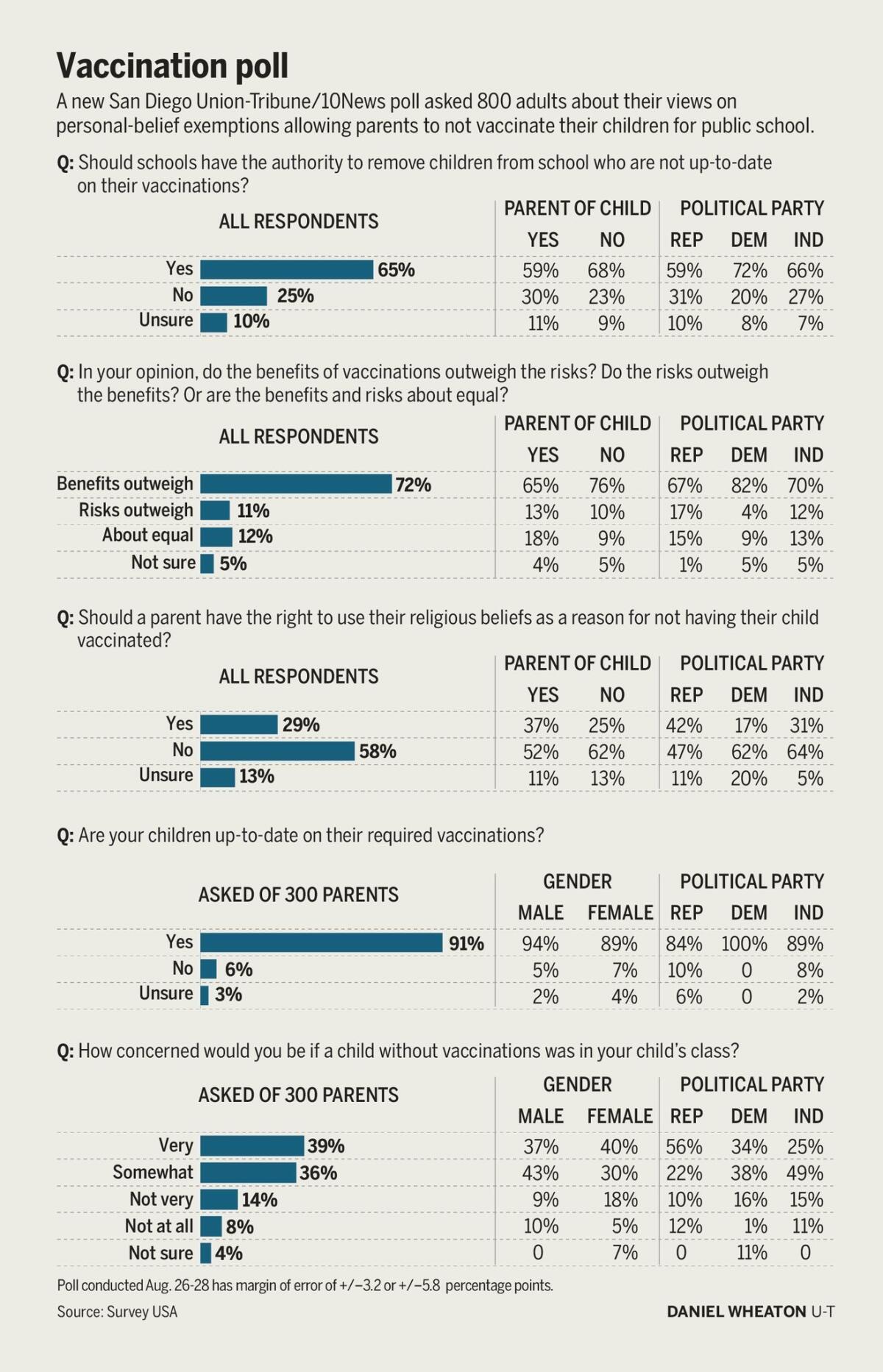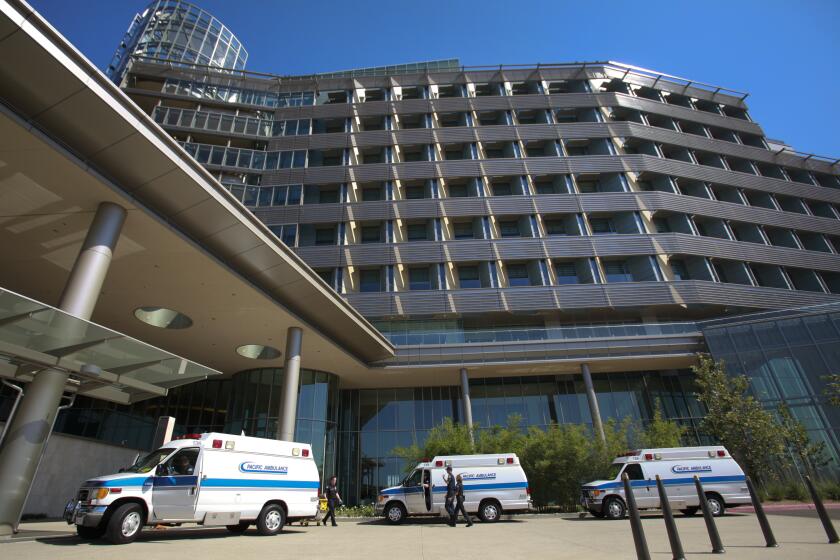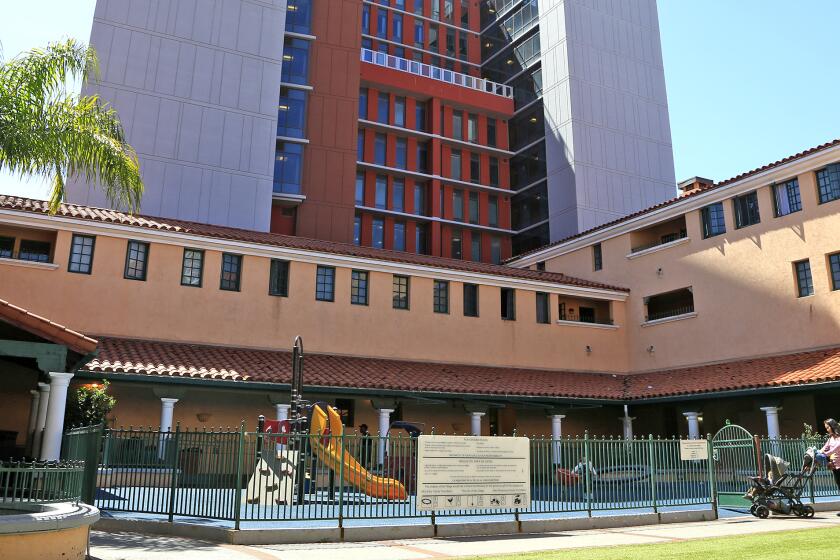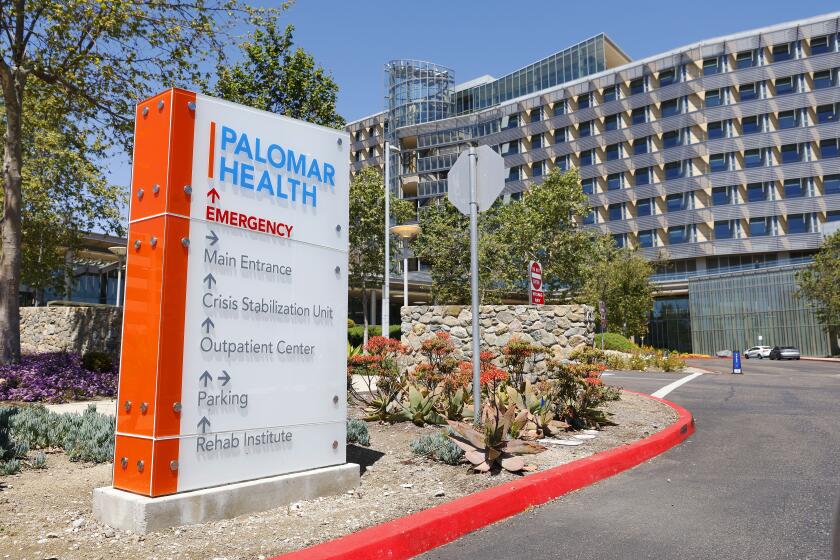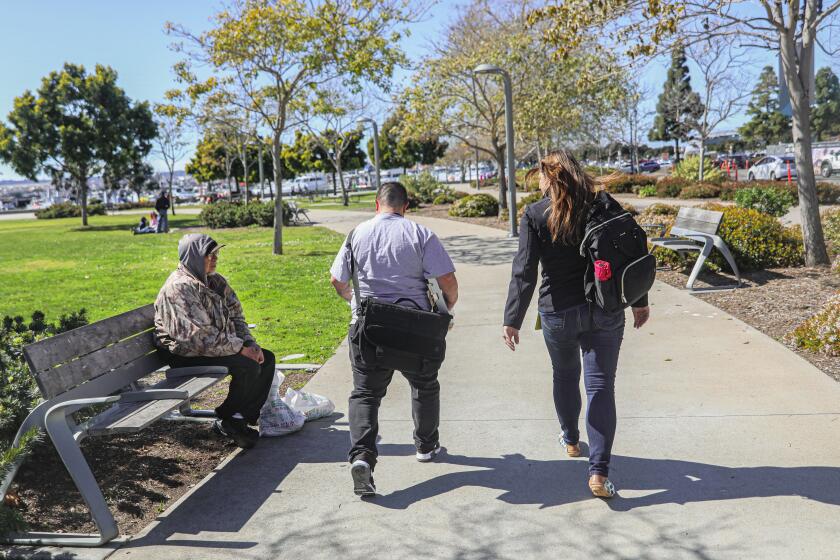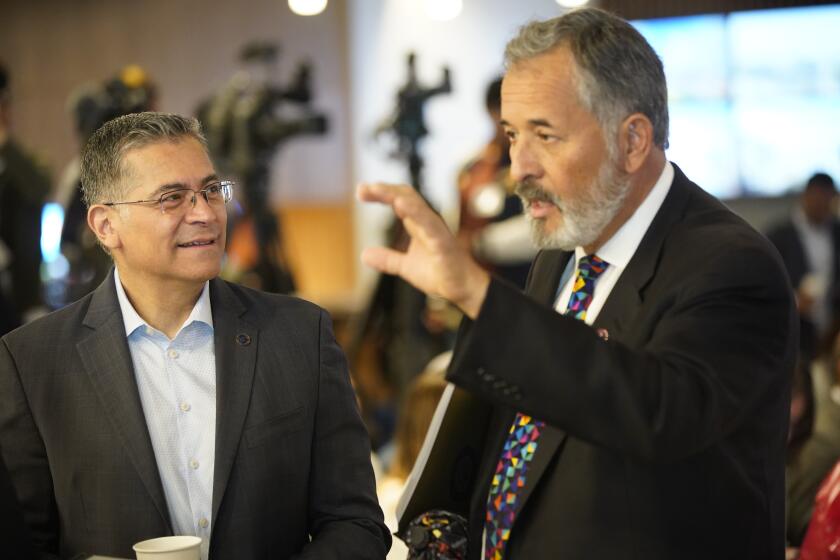Judge denies injunction against vaccine law
State will continue requiring schoolchildren to be immunized unless they have a medical exemption
A federal judge declined to put California’s controversial vaccination law on pause Friday, denying an injunction request that would have allowed families to keep claiming personal-belief exemptions while a legal fight against the new statute continues in court.
The ruling, made by U.S. District Court Judge Dana Sabraw in San Diego, means that all kindergarteners and seventh graders in public and private schools across the state must prove they are fully inoculated against 10 different diseases, from diphtheria to tetanus, unless they have a medical exemption form signed by a licensed doctor.
On July 1 a coalition of parents and other organizations, including three from San Diego, sued the state, claiming that the law, SB 277, violated their constitutional rights to an equal public education and to their rights of free exercise of religion. There are also two other pending lawsuits against the law, both filed by parents in Los Angeles. The San Diego case is the first to have an injunction hearing and decision.
In his 18-page order, released Friday afternoon, Judge Sabraw cites more than 100 years of legal precedents that have protected states’ rights to compel vaccination in the role of protecting the public against infectious disease.
“Even outside the context of vaccination laws, the Supreme Court has reiterated the fundamental rights under the First Amendment to the United States Constitution do not overcome the State’s interest in protecting a child’s health,” Sabraw wrote.
However, the parents who brought the San Diego case say they are not questioning the state’s ability to compel vaccination but rather it’s ability to take away the right to personal-belief exemption. But Sabraw also rejected this idea.
“The Constitution does not require the provision of a religious exemption to vaccination requirements, much less a personal belief exemption,” Sabraw said.
Still, the full merits of the case were not on trial in the parents’ request for a preliminary injunction. The law simply asks a judge to determine whether or not a given case has a good chance of success at trial. If it does, then the idea is to stop the effects of a disputed decision or action until the the case is fully argued and decided.
Here, Sabraw also said the case came up short.
“Plaintiffs have not shown they have a likelihood of success on their claim that SB 277 violates the right to education under California law,” Sabraw wrote.
The decision did not appear to dull the resolve of Robert Moxley, one of for attorneys representing the parents. He said the precedents cited were all familiar but, ultimately, focused on slightly different sets of circumstances.
“The principle we have to defend and establish is the right of healthy people to make their own health care choices. We’re going to have to delve into a thicket that, of course, a preliminary injunction hearing just doesn’t delve into,” Moxley said. “What we are exploring is individual rights versus the power of the state and all of the nuances and legal background is going to have to be applied to vaccines which, obviously, it never has. When most of the precedents being relied on are 100 years old, there is room to litigate this thing.”
Meanwhile the coalition that got SB 277 passed in 2015 cautiously celebrated Friday’s ruling.
Catherine Martin, director of the California Immunization Coalition, said the public health community and vaccination advocates respect personal rights but feel the needs of the whole come first.
“It’s clear that, unless parents are required to vaccinate their kids, many of them won’t,” she said. “It’s not about what people feel about immunization, and it’s not necessarily about individual rights. In this case, it’s about what’s best for the community.”
The case is simply the latest flash point in an ongoing vaccination backlash that started when many began to realize that personal belief exemption rates were rising at many private schools across the state. Though vaccination rates are still generally much higher at public schools, and the overall vaccination rate is still around 90 percent, many began to worry that a trend away from vaccination could hurt herd immunity, the idea that near-universal inoculation prevents disease from spreading far in large populations.
The heat around the issue got even hotter after a measles outbreak at Disneyland in 2014. But, as the back-and-forth over the issue has shown in the last 18 months, those who are resisting vaccination are not one monolithic group.
Some are outright opposed to all vaccinations out of concerns that they cause conditions such as autism despite many peer-reviewed papers that show otherwise. Others say they are simply opposed to the pace and breadth of the government’s vaccination schedule and would prefer that their children get their shots at less frequent intervals. Others object to certain vaccinations, such as those that prevent hepatitis and chicken pox, because they prevent disease in older children or adults but not young children. And then there are those who say they fear adverse reactions because family members or relatives have had problems that cropped up after receiving a vaccine dose.
Though the public health community has repeatedly assured parents that these concerns are unfounded, many simply are not buying it.
Rebecca Estepp, a Poway mother and vaccine critic who supports the lawsuit, said she has not heard of many parents who decided to get their children vaccinated now that SB 277 has taken effect. Some, she said, have decided to home school. Others are considering moving out of state.
“These are healthy children who are still going to church and Boy Scouts and Little League and dance class so this really doesn’t do much for public health because they’re still out there in the community,” Estepp said.
It’s important to note that SB 277 does not apply to children not entering kindergarten or seventh grade. So, children who had a personal-belief exemption in place last year will not have to prove vaccination until they reach the next “checkpoint” grade.
Injunction requests are not finished. Two other cases on file in Los Angeles are also moving forward. One, filed in state court, filed a request for a similar injunction on Aug. 4.
